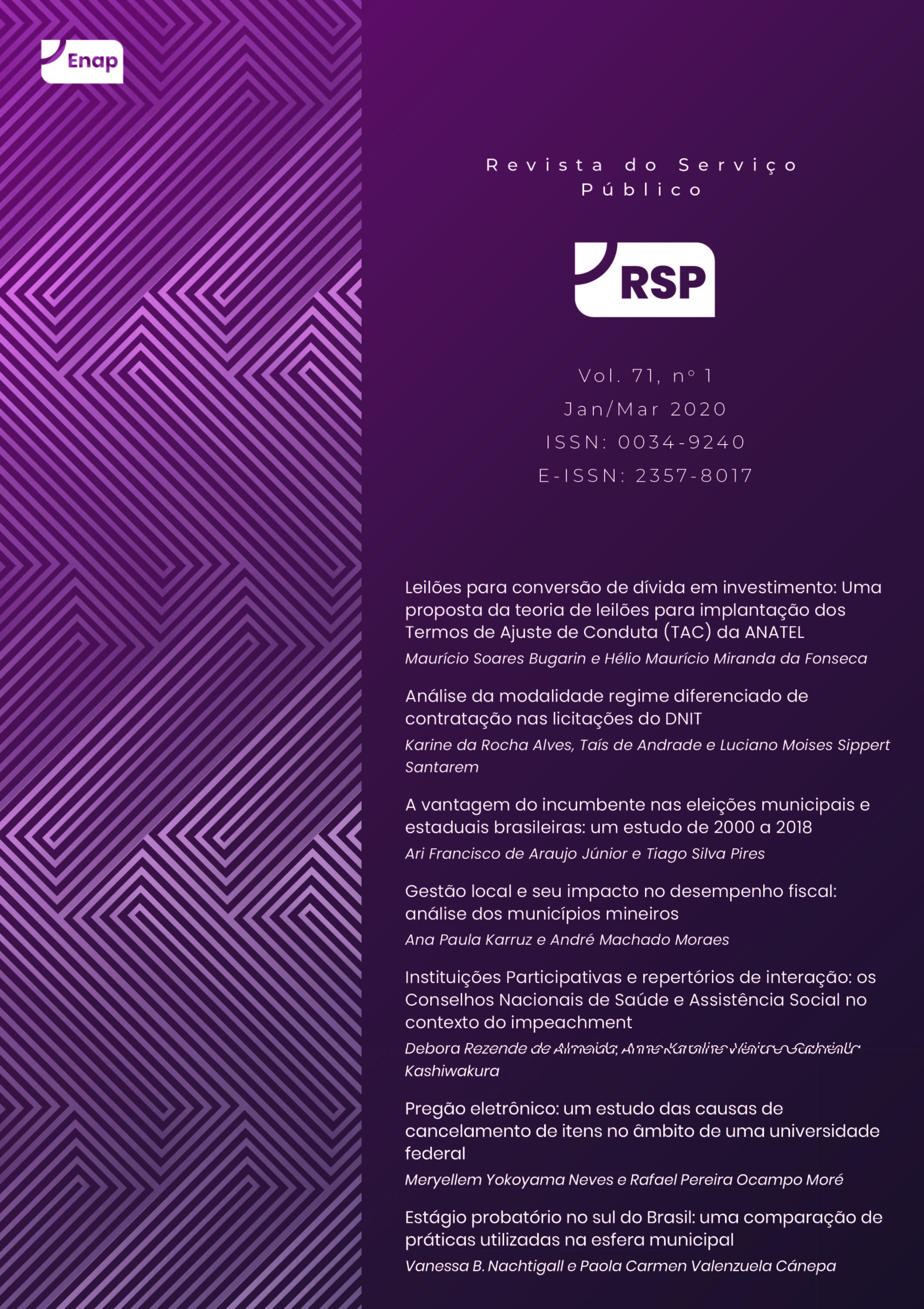Incumbency advantage in Brazilian municipal and state elections: a study from 2000 to 2018
DOI:
https://doi.org/10.21874/rsp.v71i1.3992Keywords:
incumbency advantage, elections, BrazilAbstract
The aim of this article is to investigate the occurrence of the incumbency advantage phenomenon in Brazilian local and state elections. The methodology adopted is that of repeated pairs of Brambor and Ceneviva (2011), in which pairs of candidates who face each other more than once are the unit of analysis. The greatest advantage of using it lies in the removal of candidate and municipality fixed effects. Contrasting evidence is found in terms of the incumbent’s advantage for elections of mayors and governors. The results suggest that incumbent mayors suffer a disadvantage of
2.7 percentage points in the Brazilian municipal elections. There is evidence of a downturn in the incumbent’s disadvantage between the 2000 and 2008 elections. However, there has been a growth in the phenomenon for the years 2012 and 2016. On the other hand, incumbent governors enjoy a significant advantage of 9.5 points percentages. The advantage of incumbent governors seems to be steadily increasing from 1998 to 2010, when it reaches a maximum of 17.3 percentage points.
Downloads
Downloads
Published
How to Cite
Issue
Section
License
Copyright (c) 2020 Revista do Serviço Público

This work is licensed under a Creative Commons Attribution-NonCommercial-ShareAlike 4.0 International License.
- A RSP adota a licença Creative Commons (CC) do tipo Atribuição – Uso Não-Comercial (BY-NC).
- A licença permite que outros remixem, adaptem e criem obra licenciada, sendo proibido o uso com fins comerciais.
- As novas obras devem fazer referência ao autor nos créditos e não podem ser usadas com fins comerciais, porém não precisam ser licenciadas sob os mesmos termos dessa licença.
- Ao publicar o artigo na RSP, o autor cede e transfere para a ENAP os direitos autorais patrimoniais referentes ao artigo.
- O artigo publicado na RSP não poderá ser divulgado em outro meio sem a devida referência à publicação de origem.
- O autor que tiver o artigo publicado na RSP deverá assinar o Termo de Concessão de Direitos Autorais (em momento oportuno a editoria da Revista entrará em contato com o autor para assinatura do Termo).



